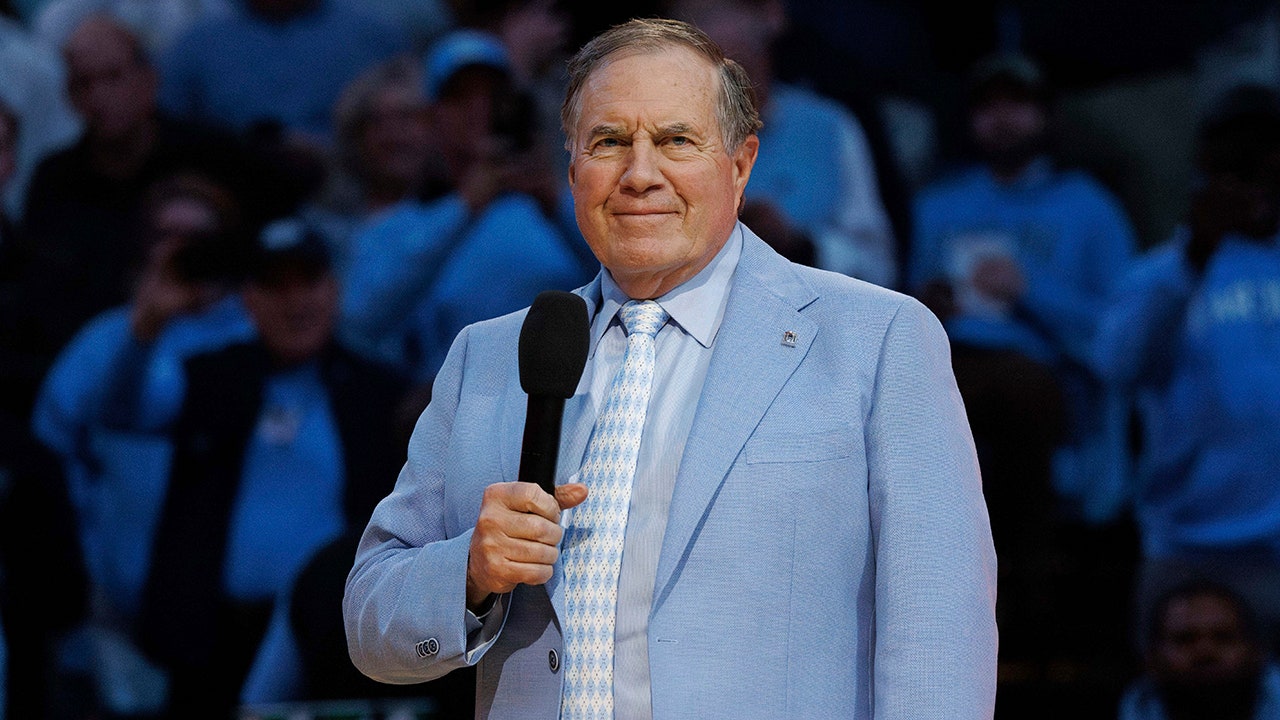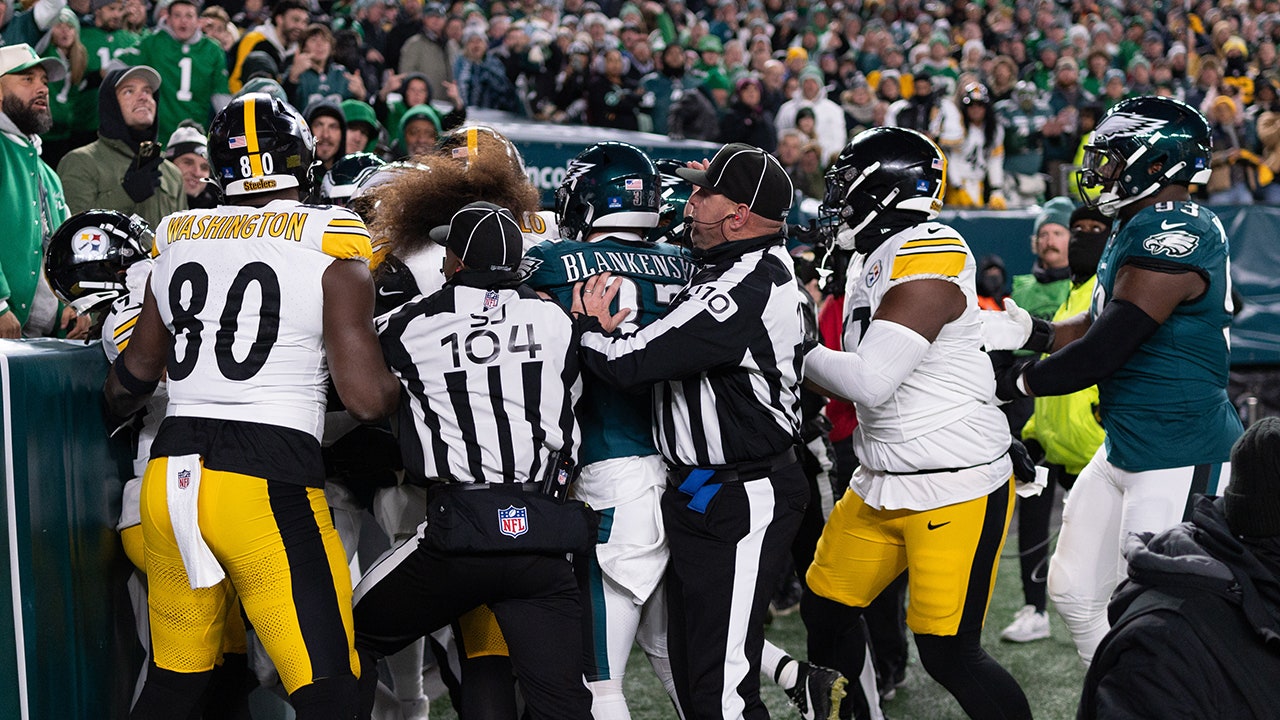Whoever wrote this sequence was, I fear, a completist. Having worked through all these saucy entrances, the camera circles back to check in on everyone’s progress. I’m pleased to report that they are all (with one exception) writhing in uncomplicated ecstasy.
But if reading that list felt long, watching it felt even longer.
I couldn’t help but wonder why. This is, after all, the kind of thing at which “Sex and the City” excelled. The original show’s sex scenes often doubled as shorthand for the topic to be worked out over the course of an episode — Samantha (Kim Cattrall) getting bored during coitus, say, or Carrie wincing as an overzealous lover plied his trade. It occurs to me now that the show’s funniest, most fearless conversations tended to revolve around bad sex — why it was bad, or off-putting, or unfamiliar, and how much to risk to make it better.
Based on this pattern, you might expect the aforementioned exception to the Really Great Sex montage to set the episode’s agenda. Law professor Nya Wallace (Karen Pittman) appears in the sequence alone, “watching ‘Bridgerton’ knockoffs,” as she puts it to Miranda later, “waiting for a FaceTime from my estranged husband on tour.”
It’s not Shakespeare but it’s a starting point, and because Nya is the last person we see in that endless intro — the punchline, as it were — I figured the episode’s main story, its A plot, would revolve around her or marinate in her version of a problem plenty of people have. Will Nya talk about how the collapse of her marriage is affecting her libido? Feel ambivalent about needing (or not needing) a man? Move from soft-core romance to porn? Sublimate her grief over losing someone she’s been with through most of her adult life?
It takes way too long to find out. Whereas “Sex and the City” was structured to a fault by Carrie’s voice-overs — lacing its characters’ risky discussions of sexual taboos with warm if sometimes frivolous epiphanies that tied all the plots together — “And Just Like That …” feels defensive and well meaning but also aimless and distractible. Like it keeps losing track of the story it’s trying to tell.
The episode does finally get around to Nya, but it would be charitable to call her story a C plot. The show visits virtually everyone else first, starting with a post-coital Carrie, who asks Franklyn why he likes watching cooking shows. (His answer: “No idea.”) This riveting exchange inspires Carrie to try to poach an egg.
The main story — a fabulous premise for a character obsessed with fashion, at least in theory — is that Carrie is going to the Met Ball! It’s unclear whether she’ll take Seema or Anthony (Mario Cantone) as her guest. Charlotte is also going; she’s in knots trying to decide whether to take Harry or Anthony as hers.
That’s most of what this plot covers, story-wise.
Is this … conflict? Is it even, strictly speaking, plot? These reshufflings fail to test or even mildly strain the relationships in question; Anthony, for instance, expresses only slight exasperation at getting bumped by his pals. We never see the ball itself, only some preparatory angst, and most of the pre-party panic belongs to a character we barely know who designs a bad dress.
Other storylines are murkier still. Take Lisa: She’s busy keeping track of her family’s things and trying to secure more fundraising for her documentary. Her husband says she’s working too hard and offers to just write her a check so she can relax. She takes umbrage. She’s a grown woman with multiple degrees, she says, and can find financing herself!
It’s unclear what we’re supposed to think about any of this; baffling nonevents like these stack up without sharpening into anything as coherent as a conflict. Herbert at one point forgets to send out invitations for a party, but it’s not a big deal. His mother disapproves of Lisa, but it’s basically fine. Lisa doesn’t like her son’s girlfriend and it seems like an actual arc might finally be in the offing — about maternal feelings of ownership over sons — but no such thing materializes in the episodes critics received. The biggest obstacle Lisa faces in the first seven episodes concerns transportation; twice, she ends up triumphantly walking to events to which she should have been driven.
Viewers who find the first few episodes a bit slow can take heart: Some momentum finally starts to build in the fifth episode.
The new season does have a few things going for it. Carrie is thankfully less catatonic, and while some of her plots feel less than essential, she is thinking a lot about Aidan (John Corbett), her ex. Miranda remembers she’s a mother, and Charlotte remembers that she’s more than one. Candice Bergen returns as Enid, Carrie’s old boss at Vogue, Gloria Steinem turns up at an event Carrie was inclined to dismiss, and there’s at least one genuinely good and funny group conversation about a sex problem. A very pretty “snowpocalypse” episode finally delivers what the Met Ball episode doesn’t: glorious spectacle.
An unexpected highlight of the new season is the way it handles the controversial relationship between Miranda and Che. Miranda’s messy new life sometimes feels like it lives a different show, but in lieu of racing from one unconvincing epiphany to another as she did last season, the character finally gets some space to flounder and crash and doubt.
The series needed that. Many fans found its generally joyous treatment of Miranda’s guiltless affair with Che, a nonbinary comedian, in the first season off-putting. In hindsight, the pushback is understandable. The show’s total endorsement of Miranda’s search for authenticity had a price: Her amiable husband, Steve (David Eigenberg), had to be portrayed as a dead end she needed and deserved to escape. So Steve’s deafness was depicted as annoying, his resignation lethal, and his incompetence so extreme that he even got lost at farmers markets.
This revisionist approach to a figure audiences know well was a tactical misstep. It didn’t — couldn’t — undo the unassuming but attentive sweetness Steve had always shown throughout his and Miranda’s down-to-earth love story. By barely acknowledging his good points as part of the odd couple that so movingly reconciled on that bridge in the “Sex and the City” movie, the show only made viewers distrust the new show’s writers.
And the vibrant new relationship they were trying to sell.
Miranda was a little weird, too. A lifelong cynic, she was suddenly acting like a tender, doe-eyed optimist unencumbered by guilt or doubt. It felt like a comeuppance of some sort was en route. This was confusing in ways that (ironically) made it impossible to rejoice in her self-discovery. Miranda’s queerness felt manic in its positivity, like a friend who comes back from a weekend workshop telling you they’ve got life figured out.
That, plus the casual revelation that Miranda was an alcoholic, made her storylines feel unstable. Suspect, as if another shoe was about to drop. Would this turn out to be just a phase? That seemed retrograde, unthinkable. Was Miranda’s infatuation somehow an artifact of her addiction? That didn’t seem likely, either; the show was too flippant about the alcoholism to make it matter.
Then, of course, there’s Che.
Instead of letting Ramirez’s natural charisma do its work, “And Just Like That …” unwisely instructed audiences that Che was awesome and hilarious and also wise and inspiring, a “comedy prophet.” Of course this made a lot of viewers hate them. The character was narrated as so self-evidently terrific, so authentically in touch with their desires, so honest and fulfilled and free that dissenters were implicitly pathologized as part of the oppressive society Che transcended in their journey to self-acceptance.
The second season abandons this noxious approach to a character who deserved better. It lets Che have flaws. It lets them doubt. It even lets them cry. Che’s relationship with Miranda is imperfect in ways viewers are permitted to notice. Che fails and learns. It’s an improvement.
“And Just Like That …” tries this season to compensate for its sexlessness with a wearying amount of inconsequential sex, just as it compensated in its first season for “Sex and the City’s” whiteness by introducing several women of color for the principals to befriend. It’s not necessarily a problem that Che’s arc ends up being more dramatic and interesting than Lisa’s or Nya’s or Seema’s. It’s definitely a problem, however, that I’m still not sure, seven episodes in, what any of these interesting new additions need, or want.
And Just Like That … starts June 22 on Max. The first two episodes will be available Thursday, with subsequent episodes dropping weekly.















































